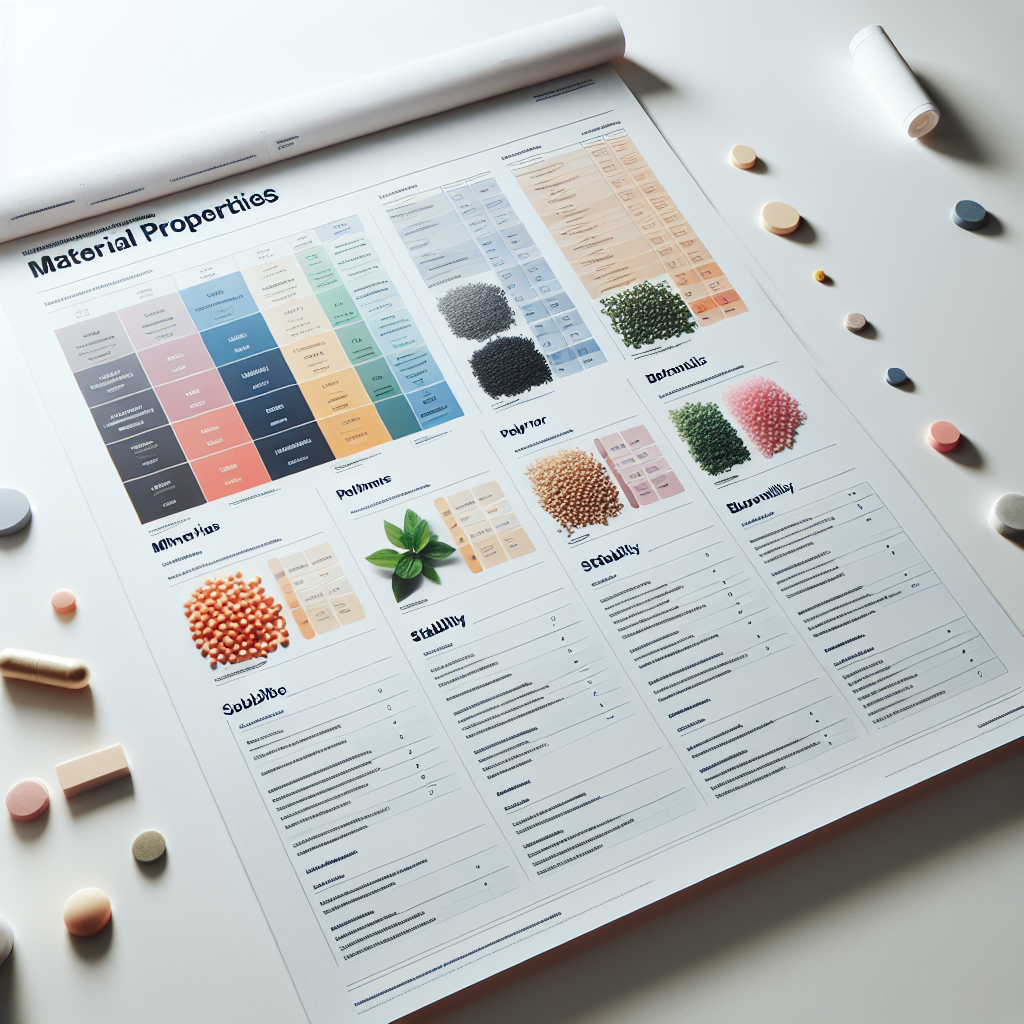Every product you interact with daily—from your smartphone’s screen to the kitchen utensils you use for breakfast—has undergone rigorous hardness testing to ensure it meets specific performance standards. Material hardness, though often overlooked by consumers, represents one of the most fundamental properties that engineers and manufacturers evaluate when developing products that can withstand daily use.
Hardness material testing measures a material’s resistance to permanent deformation when subjected to concentrated force. It serves as a critical indicator of how materials will perform under stress, providing manufacturers with essential data to make informed decisions about material selection. This seemingly simple property influences everything from the durability of your supplement containers to the reliability of manufacturing equipment used to produce nutritional products.
For manufacturers in the nutritional supplement industry, understanding material hardness isn’t just about technical specifications—it’s about creating products consumers can trust. When supplement capsules require precise hardness to dissolve at the right moment in the digestive tract or when manufacturing equipment needs to withstand continuous operation without wearing down, hardness material testing becomes essential to product integrity and safety.
At NutraAeon, we recognize that quality begins with understanding the fundamental properties of materials. Our philosophy emphasizes rigorous testing protocols that exceed industry standards, ensuring that every component—from raw ingredients to packaging—meets exacting specifications. This attention to material properties reflects our commitment to being a premier global partner for nutritional ingredients where quality forms the foundation of everything we produce.
The Science Behind Material Hardness
Hardness testing provides crucial insights into how materials will behave during manufacturing processes and throughout a product’s lifecycle. The concept seems simple—measuring a material’s resistance to indentation—but the science behind it reveals complex relationships between a material’s microstructure, composition, and performance characteristics.
Material hardness correlates strongly with other mechanical properties like tensile strength, wear resistance, and machinability. By understanding a material’s hardness, manufacturers can predict how it will respond to various manufacturing processes and service conditions. This knowledge helps prevent product failures, extends service life, and ensures consumer safety—all priorities that align with NutraAeon’s commitment to quality and transparency.
The importance of hardness material testing extends beyond simple quality control. It serves as a non-destructive method to verify heat treatment effectiveness, ensure batch-to-batch consistency, and confirm that materials meet specified standards. For manufacturers of nutritional supplements, where consistency and safety are paramount, hardness testing provides assurance that products will perform as intended and maintain their integrity throughout their shelf life.
Major Hardness Testing Methods
Several standardized methods have been developed to measure material hardness, each with specific applications and advantages. Understanding these methods helps manufacturers select the most appropriate testing approach for their specific materials and requirements.
Brinell Hardness Test
The Brinell test, one of the oldest standardized hardness tests, involves pressing a hardened steel or carbide ball into the material’s surface with a specified force. The diameter of the resulting indentation determines the Brinell Hardness Number (BHN). This method is particularly useful for testing larger, heterogeneous materials like castings and forgings.
“The Brinell test provides excellent repeatability for materials with varying microstructures,” explains materials science researchers. “This makes it ideal for quality control in manufacturing environments where consistency across large batches is essential.”
The test excels at measuring the hardness of materials with coarse grain structures, making it valuable for testing raw materials used in manufacturing equipment for nutritional supplement production. At NutraAeon, similar testing principles ensure our manufacturing partners receive ingredients that meet consistent quality standards batch after batch.
Rockwell Hardness Test
The Rockwell hardness test measures the depth of penetration of an indenter under a large load compared to the penetration made by a preload. This method is faster and more convenient than other hardness testing methods, making it the most commonly used approach in production environments.
Different Rockwell scales exist for various material types, with the Rockwell C scale (HRC) typically used for hardened steels and the Rockwell B scale (HRB) used for softer metals. The method’s versatility and speed make it invaluable for quality control during high-volume manufacturing.
“Rockwell testing provides immediate results with minimal sample preparation,” notes manufacturing quality experts. “This allows for rapid adjustments during production, ensuring consistent material properties throughout manufacturing runs.”
This testing methodology aligns with NutraAeon’s philosophy of rigorous quality control throughout the production process. Just as manufacturers rely on Rockwell testing to verify material consistency, our industry-leading testing protocols ensure every ingredient batch meets or exceeds quality expectations.
Vickers Hardness Test
The Vickers hardness test employs a diamond pyramid indenter to make an impression on the material’s surface. The Vickers Hardness Number (VHN) is calculated based on the applied load and the surface area of the indentation. This method works well for very thin materials and provides highly accurate measurements across a wide range of hardness values.
The Vickers test is particularly valuable for measuring the hardness of coatings, heat-affected zones, and other areas where precise, localized measurements are required. Its versatility makes it suitable for research and development applications as well as quality control.
“The precision of the Vickers test makes it indispensable for evaluating critical components where failure could have serious consequences,” explains materials testing specialists. explains materials testing specialists. “Its ability to make micro-hardness measurements enables detailed analysis of material properties at specific locations.”
This level of precision mirrors NutraAeon’s approach to quality assurance, where detailed analysis and documentation provide complete transparency about ingredient properties and performance characteristics.
Knoop Hardness Test
The Knoop test, similar to the Vickers test, uses a diamond indenter but with an elongated pyramid shape. This specialized indenter allows for hardness testing of very thin materials, brittle materials, or surface layers where minimal material deformation is desired.
The Knoop test is especially valuable for measuring the hardness of ceramics, glass, and thin coatings, making it relevant for specialized packaging and delivery systems in the nutritional supplement industry.
“Knoop testing provides unique capabilities for measuring hardness gradients and thin surface layers,” notes materials scientists. “This makes it invaluable for evaluating specialized treatments and coatings that enhance material performance.”
At NutraAeon, we appreciate this level of detailed material understanding, as it mirrors our own comprehensive approach to ingredient characterization and quality verification.
Industry Applications of Hardness Testing
Hardness material testing impacts virtually every manufacturing sector, from automotive and aerospace to electronics and consumer goods. In each industry, hardness testing serves specific purposes aligned with particular performance requirements and safety standards.
Automotive and Transportation
In automotive manufacturing, hardness testing ensures that critical safety components like brake systems, chassis parts, and engine components meet stringent performance requirements. Different parts require specific hardness values—engine components need wear resistance, while structural elements must balance strength with appropriate flexibility to absorb impact.
“The reliability of transportation systems depends on materials performing exactly as specified,” observes automotive manufacturing experts. “Hardness testing provides essential verification that heat treatments and manufacturing processes have achieved the required material properties.”
Electronics and Consumer Devices
For electronics manufacturers, hardness testing helps ensure that device housings, screen materials, and internal components can withstand daily use without premature failure. As devices become thinner and lighter, the importance of precise hardness specifications increases.
“Consumer expectations for durable yet lightweight devices create significant materials challenges,” notes consumer electronics manufacturers. “Hardness testing helps identify materials that can meet these seemingly contradictory requirements.”
Nutritional Supplement Production
In nutritional supplement manufacturing, hardness testing plays several critical roles that directly impact product quality, effectiveness, and consumer safety. From production equipment to packaging materials, understanding hardness properties ensures consistent performance throughout the product lifecycle.
For tablet production, hardness testing determines whether compressed tablets will maintain their integrity during packaging, shipping, and handling while still dissolving appropriately when consumed. Too soft, and tablets crumble during distribution; too hard, and they may not release active ingredients effectively.
Production equipment must also meet precise hardness specifications to withstand continuous operation without contaminating products through wear particles. This is particularly important for equipment that contacts ingredients directly, where material integrity directly impacts product purity.
At NutraAeon, we understand these connections between material properties and final product quality. Our commitment to empowering manufacturers with technical expertise includes sharing insights about how material characteristics impact manufacturing processes and product performance.
Advancing Quality Through Scientific Rigor
The scientific discipline of hardness material testing exemplifies the connection between fundamental material science and exceptional product quality. By applying rigorous testing methodologies and understanding material behavior at a detailed level, manufacturers can consistently deliver products that exceed consumer expectations.
This scientific approach mirrors NutraAeon’s philosophy of excellence through quality, transparency, and empowerment. Just as hardness testing provides objective data about material performance, our comprehensive testing protocols deliver clear documentation and certificates of analysis that verify ingredient quality.
Forward-thinking supplement manufacturers recognize that quality differentiation begins with understanding fundamental material properties. By selecting partners who share this commitment to scientific rigor and quality verification, manufacturers position themselves to create standout products in a competitive marketplace.
Conclusion: The Hidden Foundation of Quality
Material hardness testing represents the hidden science behind countless products we rely on daily. Though consumers rarely consider the hardness of materials in the products they use, this fundamental property profoundly influences product performance, safety, and durability.
For nutritional product developers and health-conscious product manufacturers, understanding the importance of material properties extends beyond their own production equipment to selecting partners who demonstrate similar commitment to scientific rigor and quality assurance.
NutraAeon’s brand vision of being the premier global sourcing partner for nutritional ingredients aligns perfectly with the principles exemplified by hardness material testing—objective measurement, scientific verification, and unwavering quality standards. By applying similar quality-centric approaches throughout their operations, manufacturers can create products that truly stand out in today’s competitive marketplace.
In an industry where consumer trust is paramount, the scientific foundation provided by understanding material properties becomes a powerful competitive advantage. The hidden science of hardness testing reminds us that excellence isn’t accidental—it’s the result of rigorous testing, deep material understanding, and an unwavering commitment to quality.


